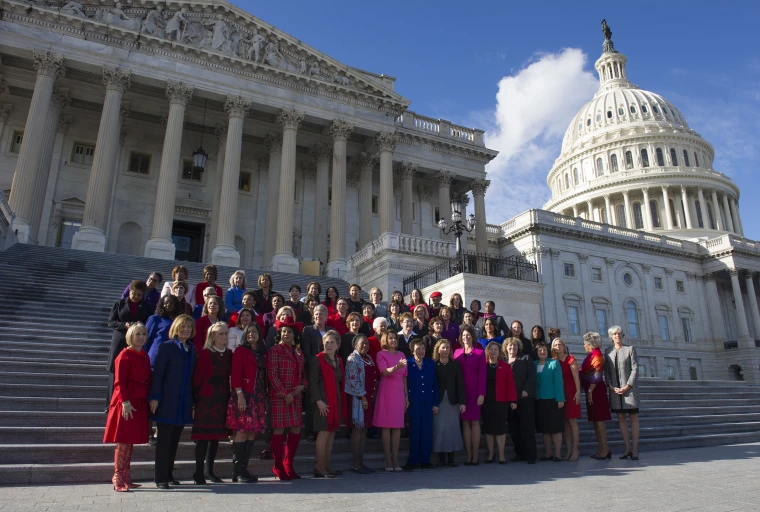Carla Qualtrough – Minister of Sport and Physical Activity, committed to building a more inclusive Canada
The Honourable Carla Qualtrough has won three Paralympics and four World Championship medals and been named one of Canada’s most influential women in sport six times. Following her exceptional sporting career, she became a human rights lawyer and political leader. She is currently a Member of House of Commons. She served as a Minister of Sport and Physical Activity and at the time of this interview she was serving as Canada’s Minister of Employment, Workforce Development, and Disability Inclusion, where she lives out her deep commitment to equity and inclusivity.
In this dynamic conversation with Jen and Catherine, Carla Qualtrough speaks candidly about growing up legally blind and the bullying she endured because of it. She also discloses what drove her to politics, discusses the biggest obstacles currently facing people with disabilities, and reveals how the Paralympics made her who she is today.
Note: This transcript has been edited for clarity and length.

Being born blind and growing up different from other kids
Jennifer Stewart: Minister, you were born legally blind. Did you realize growing up that things were different for you than they were for other kids?
Carla Qualtrough: I grew up in a very supportive environment with family and friends and teachers that really accommodated me and taught me that I had a right to be accommodated. And I was quite insulated as a child from what was going on in the rest of the world. It was really only when I went into middle and high school that I started to figure out how different I actually was. Thank heavens I had parents who were stubborn advocates for my inclusion. And I was very implicated in a sport system that celebrated the fact that I could be very good at something. That kind of got me through.
Bullying in high school
Catherine Clark: Did kids pick on you for being different?
Carla Qualtrough: Absolutely. I was bullied quite extensively in my Grade 8 to 11 years of high school and made fun of, ostracized, ignored – all because I looked different and because I couldn’t see very well. I found Paralympic sport, and parasport, at that time when I think my life could have taken a very different path. If I hadn’t found that outlet and that support system, I’m not sure I’d be where I am today.
Jennifer Stewart: Did you ever have a time in those high school years that was very dark for you? And if so, what got you through? Those are such challenging years, as it is. But then to add the bullying that you encountered – I’m sure it was extremely difficult.
Carla Qualtrough: Absolutely. I would say Grade 8 and Grade 9 were really tough years for me. I was no longer part of a smaller kind of elementary community who knew me and had known me since kindergarten. The fact that I couldn’t see started to really matter both in terms of how I interacted with the world and in terms of how people interacted with me. Long-term friends abandoned those friendships and didn’t stick up for me. It was really tough. I looked very different and I acted differently. I had to put material up closer to my face to read it but I would be reading something on a desk and then someone would walk by me and just kind of push my face into the desk and make me bump my nose on the desk. It was not insignificant how I was treated and definitely left its mark on me.
Catherine Clark: When you say left its mark on you — how?
Carla Qualtrough: It ingrained in me a commitment to never be the person that excluded somebody else because of assumptions that I would make about them, whether it’s because of how they looked or how they talked or who they loved or whatever difference they may have.
I would accept people for who they were and find the things about them that we would have in common and that we could celebrate together and kind of accept difference as good.
Carla Qualtrough
Paralympic sport and her support system
Catherine Clark: What led you to take up swimming?
Carla Qualtrough: I was born into a family where we did every sport imaginable – downhill skiing, waterskiing, curling, baseball – and every sport I wanted to try, my dad went to extraordinary lengths to help me feel able to participate in it. But eventually, all the accommodations in the world couldn’t compensate for the fact that it just got too fast. The ball got too fast, the slopes got too steep. And that’s when I found Paralympic sport. And I tried a whole bunch of sports that are designed for people who are visually impaired or that have built-in rules that accommodate for people with visual impairments and I found something and fell in love. I just loved to race; I loved to compete; I loved to train; I loved to become better. And that’s what swimming allowed me to do.
Jennifer Stewart: We want to touch upon obviously your career as a Paralympian, but first of all, it just sounds like your parents were remarkable people. What kind of influence did they have on you?
Carla Qualtrough: Two very different personalities and very complementary personalities. My father was very much ‘Let her try, pick her up if she falls, dust her off, let her try again. Don’t let other people define your limits.’ And my mom was the advocate working with the schools. If they said I couldn’t do home ec, she would say, “Of course, she can do home ec. Figure it out. She needs to learn to sew.” Or they wouldn’t let me do gymnastics because they didn’t want me on a balance beam. And she would just fight to have me be on a balance beam. My mom was an advocate for me and taught me to self-advocate, and taught me to ask for what I needed. It wasn’t a sign of weakness to ask for help or to ask if I could do something slightly differently. And that has served me incredibly well as a life lesson my entire life.
Lessons learned from the Paralympics
Jennifer Stewart: What did the experience of competing at the high, very intense level of a Paralympian teach you? How did it prepare you for politics?
Carla Qualtrough: It taught me all the general lessons that you learn through sport: hard work, don’t cut corners, being a member of a team, time management. But the Paralympic movement in particular, exposed me to, first of all, a world of massive discrimination that exists out there around the world. I really got to see how in other countries, people like me were hidden, and people like me didn’t work, and you just couldn’t see disability on the streets. It really made me interested in the human rights side of disability. But it also intrigued me in terms of my lifelong interest in building systems that are inclusive from the beginning.
Paralympics taught me all the general lessons that you learn through sport: hard work, don’t cut corners, being a member of a team, time management.
Carla Qualtrough
Paralympics, fundamentally is a system that levels the playing field before you compete. You only compete against people who are blind or visually impaired. It becomes this fair competition. It isn’t dictated by the fact that I can’t see the wall or I’m almost totally blind in the sun or whatever. Whatever your disability is, isn’t the thing that gets in the way of being good at your sport. Through the Paralympic movement, I became obsessed with the idea that we could build systems that were inclusive from the beginning instead of the accommodation I’d grown up with where you’re part of a system that doesn’t really work, but we’ll figure out how to make it work for you. We can actually design systems that are inclusive from the beginning. And that actually has become my life’s work. That has really influenced how I approach this job in politics.
I believe that excellence is a transferable skill, so if you know how to be good at stuff, you can be good at something else, potentially. But the Paralympics really prepared me to be Canada’s first-ever Minister responsible for people with disabilities. It really influenced how I’ve approached this job over the past six years.
The driving force behind her decision to go into politics
Catherine Clark: Is it the reason that you went into politics?
Carla Qualtrough: The driving force for me to go into politics was actually my experience as a human rights lawyer. I became very frustrated being part of a system where you had to wait until people were discriminated against before you could help them. And I thought, ‘How can I get involved in designing systems that remove these barriers or stop this discrimination from happening before it actually happens?’ And that’s what drove me to politics.
The challenges of being a blind cabinet minister
Jennifer Stewart: Speaking of barriers, so much of your work experience in law, now in government, obviously relies a lot on briefing materials and a huge amount of reading. What systems do you have in place to manage that?
Carla Qualtrough: I’m not new to mountains of paper – law school and lawyer work is very paper-intensive. I have a lot of support. I’m very privileged as a cabinet minister, and I’m surrounded by people who want to make it work for me. I have to be super honest about my disability and my accommodation needs, what I can and cannot see. What ended up happening is they started putting materials for cabinet on a tablet. And then all the other cabinet ministers wanted one! So now we all get our materials on a tablet.
There’s a lot of logistics in my job that have to be contemplated because of my disability. I don’t just walk into a room and give a speech. Someone goes before and sees what the level of lighting will be. Because if the lighting is too bright, I need my speech in a bigger font, because I’m almost totally blind in bright light. How high is the podium, because that, again will impact the size of font for my speech. How many stairs are there, so I don’t trip as I go onto the stage. I can’t read name tags, so when I walk into a room someone has to be telling me who’s in the room. People have learned to say their name because I might not recognize them.
The biggest obstacles for people with disabilities in Canada
Catherine Clark: A lot of other Canadians with disabilities don’t have the same kind of support you do, and it’s part of your mandate letter to develop a strategy for Canadians with disabilities. How do you go about doing that?
Carla Qualtrough: I know how privileged I am to have the level of support that I do. But I also think I’m in this really incredible position to make things better for a lot of other people as a result of my being at these tables. One of the reasons behind the creation of the Accessible Canada Act, which fundamentally shifts the responsibility to government and organizations to remove barriers instead of individuals, is to try and make things easier and more inclusive for people.
Everything I do is motivated by this understanding that there is an urgency to help people, to end this discrimination, to recognize that historically, we’ve not done right by people with disabilities in this country. And there’s an opportunity to make things better across the board, whether it’s in standalone programs that are focused on addressing barriers faced or issues that people with disabilities find challenging or across broader policies, like our childcare program or transportation or infrastructure investments, making sure that the needs of people with disabilities are considered in every decision that we make as a government. That’s my daily commitment to this community.
Jennifer Stewart: We use words like inclusion. But what does it tangibly mean? What are the biggest obstacles right now for people with disabilities in Canada?
Carla Qualtrough: There’s so much bias and there’s so much systemic discrimination. We have entire systems in this country that were designed without the needs of people with disabilities being taken into consideration. We really have some paternalistic, archaic attitudes in this country about people with disabilities. That’s the biggest barrier to inclusion, is this ongoing, attitudinal bias that people have around disability, this discomfort that people have with disability, the uncertainty and the assumptions.
I’m a very highly functioning person with a disability, and I have people make assumptions about what I can and cannot do every single day of my life. As soon as I tell people I can’t see very well, there is this loaded set of assumptions that comes with that label. And if you consider the range of disabilities – and the more severe the disability, the more discomfort there is within society for disability – it’s mind-boggling the amount of work that has to be done to address these attitudes and this bias.
It’s up to me to challenge assumptions. We have one in five Canadians identified as having a disability. That’s 20-25 per cent of our population. We have extraordinary people with extraordinary ability and creativity and innovation, ready to participate fully. And it is up to us, all of us, not just the Minister responsible for disability, to pave the way to make spaces at our tables, because our communities will be so much better off for that inclusion.









